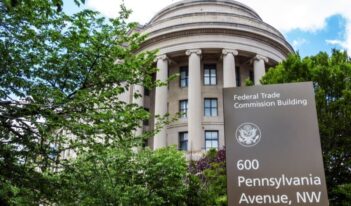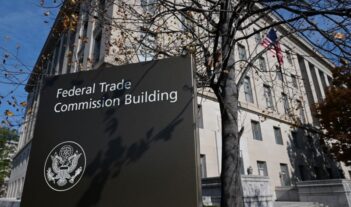
Attempts to eliminate junk fees may harm rather than help both consumers and businesses.
Junk fees—like junk food—are ever-present, annoying, and harmful. And for both junk food and junk fees, programs intended to help may not always produce desirable outcomes. Some diet plans are costly, ineffective, and lead to unintended consequences. The same is true for some regulations designed to curb junk fees.
In 2022, President Joseph R. Biden announced an initiative that called on government agencies to reduce or eliminate junk fees. The Federal Trade Commission (FTC) defines junk fees as “unfair or deceptive fees that are charged for goods or services that have little or no added value to the consumer, including goods or services that consumers would reasonably assume to be included within the overall advertised price.” The FTC also classifies hidden fees as junk fees.
Since President Biden’s announcement, government agencies have been generating rulemaking proceedings at a rapid pace. The Biden Administration has also asked the U.S. Congress to pass the Junk Fee Prevention Act (JFPA) and has encouraged states to use enforcement and legislation to go after junk fees.
The new regulatory actions, if adopted, would cover a large portion of the U.S. economy, affecting banks, airlines, hotels, online ticket vendors, cable, phone, and internet providers—if not all industries entirely. Even though some of the regulations have merit, others would create high regulatory costs and other negative consequences that would outweigh any benefits.
Careful analysis is needed before adopting these proposals. Consider, for example, the complex issues raised by just three of these proposals: JFPA, two practices in an FTC rulemaking proceeding , and a proposed rule by the Consumer Financial Protection Bureau (CFPB). The Biden Administration’s JFPA proposed legislation itself would ban early termination fees (ETFs) in certain industries, adjacent seating fees for parents flying with young children, hotel resort fees, and fees charged by online event ticket providers.
JFPA proposed ban on early termination fees.
Although JFPA characterizes ETFs for television, phone, and internet services as exploitative, banning them may make consumers worse off. ETFs serve an efficient purpose by helping service providers recoup the fixed costs of initiating service. If service providers can reduce the rate at which consumers switch between firms, the providers can offer lower prices.
Moreover, the regulation is unnecessary because many providers of cable television, phone service, and internet already offer no-contract service, so consumers can choose the option that is best for them. A better alternative would be to ensure that providers are clearly disclosing their contract terms.
JFPA proposed ban on seating fees for families with young children.
Helping families is a priority of the Biden Administration and its proposal to force airlines to provide free adjacent seating for families with young children serves that priority. In response to the proposal, U.S. Secretary of Transportation Pete Buttigieg created the airline family seating dashboard and several U.S. senators introduced the Families Fly Together Act. To forestall regulation, several airlines are initiating new seating policies to help families fly together without having to pay adjacent seating fees.
Adjacent seats are a scarce resource. Many airlines charge fees if consumers want to choose their own seats, whether it be for consumers traveling together or simply a preference for window or aisle seats. A “fee for me but not for thee” policy would cause passengers without young children to subsidize families traveling with young children. Two consequences are likely: fees for adjacent seating will increase for passengers who must pay them, and passengers with young children will be offered less desirable seats in the back of the plane.
JFPA proposed regulation of drip pricing by hotels and online event ticket vendors.
The JFPA also proposes to “ban surprise resort and destination fees” and “crack down on excessive online concert, sporting event, and other entertainment ticket fees.” Disclosing mandatory fees after the advertised price is displayed is known as drip pricing.
Regulating drip pricing is a reasonable proposal. Studies of ticket sales and airline baggage fees, and a study of hotel resort fees that I conducted while working at the FTC, all show that drip pricing makes it harder for consumers to compare prices efficiently. Banning or regulating drip pricing would increase consumers’ search efficiency. Without regulation, hotels and online event ticket vendors could not stop using drip pricing even if the companies wanted to, because their prices would appear higher than those of competing providers that continued the practice. For example, StubHub lost business to competitors when it began including fees in the posted price.
The problems associated with certain forms of drip pricing do not mean that drip pricing should be banned in all industries. Firms can sometimes create policies that improve transparency without regulation, such as Airbnb’s new pricing display.
The downside of regulating drip pricing stems from the costs that regulation would impose on firms. As discussed in the drip pricing petition penned by the Institute for Policy Integrity, it is important to conduct a cost-benefit analysis to determine whether the reduction in consumer search costs and deadweight loss from inefficient purchases would outweigh these regulatory costs on companies.
FTC junk fee advance notice of proposed rulemaking.
Turning from the JFPA’s proposals to several that the FTC raised last November in an advance notice of proposed rulemaking, the actions the FTC is contemplating are expansive, addressing eight broadly defined acts and practices covering potentially all industries.
Several of the practices are already violations of Section 5 of the Federal Trade Commission Act and likely were included in the agency’s advance notice in an effort to authorize the FTC to assess monetary penalties for these violations, a power the FTC lost in 2021 when the U.S. Supreme Court decided AMG Capital Management v. Federal Trade Commission.
Practices Seven and Eight in the FTC’s advance notice, however, are new. Because both practices are vague, understanding what the FTC has in mind requires some guesswork.
Practice Seven addresses “billing or charging consumers for fees, interest, goods, services, or programs that have little or no added value to the consumer or that consumers would reasonably assume to be included within the overall advertised price.” What does this mean? Maybe it is intended to target drip pricing, for which mandatory fees add no value to the consumer.
A less desirable alternative would be to use this language to regulate optional add-ons in cases where regulators determine that the add-ons do not add enough value or consumers reasonably assume them to be included in the advertised price. Regulating add-ons would create inefficiencies and restrict firms’ freedom to design their own products. For example, forcing firms to include add-ons with the product—such as meals with a flight or a protective case with a smartphone—would result in higher prices for those who did not want the add-on but would be forced to pay for it. In addition, such regulation could induce firms to stop offering the regulated add-ons at all. Both alternatives would reduce consumer choice.
Practice Eight addresses “misrepresenting or failing to disclose clearly and conspicuously on an advertisement or in marketing the nature or purpose of any fees, interest, charges, or other costs.”
Like Practice Seven, Practice Eight leaves out important specifics. Would this practice pertain only to mandatory fees? Or to fees for optional add-ons as well? What types of disclosures would be required—a link with a description of the fee, or a full-blown description in the advertisement? What type of advertisements would require the disclosures—those that mention price, or all advertisements? If the former, would Uber be required to explain its booking fee on the ride options screen, even though the fee is included in the quoted prices? If the latter, would a hotel have to provide in all its advertisements a list of its optional add-ons, such as champagne in the room, spa treatments, and faster Wi-Fi?
A rule along the lines outlined with Practice Eight has the potential to clutter advertising, making it less effective and more confusing. One thing is certain: Practice Eight could result in enormous compliance and administrative costs, especially if applied to all industries.
CFPB proposed cap on credit card late fees.
In addition to the proposals floated by the FTC, the CFPB has proposed a separate rule to lower the cap for credit card late fees to $8, which would be 70 percent to 80 percent lower than the current caps of $30 for the first late payment and $41 for subsequent ones. Those who contend that this rule will increase equity should be concerned that it could make cardholders with low credit scores worse off.
In proposing the $8 cap, the CFPB has ignored several economic principles. First, it disregarded the effect that late fees have on the deterrence of late payments. Second, the $8 late fee would not cover the collection costs of all issuers. Third, the proposed rule would not permit the cap to be adjusted for inflation. Over time, the $8 late fee would become trivially small and would not cover any issuer’s collection costs, however defined.
With the proposed cap on late fees, both late payments and issuers’ costs are expected to increase. Card issuers would likely raise interest rates for those with low credit scores to offset these costs and could even quit issuing cards to consumers with low credit scores. Such actions would hurt all credit card holders with low credit scores—whether they make payments on time or not. This would also make it more difficult for consumers with low credit scores to obtain credit. A more efficient alternative would be to provide better disclosures to warn consumers of upcoming payment deadlines and penalties for late payments.
This discussion of regulatory policies in the CFPB’s proposed rule as well as the proposed JFPA legislation and the FTC’s advance notice of proposed rulemaking, does not cover all the junk fee proposals under consideration in Washington, D.C. today. I have not discussed, for example, the other six practices in the FTC junk fee advance notice. Nor have I addressed the FTC’s auto dealer rule, the CFPB’s initiative against consumer finance fees, or the Ocean Shipping Reform Act, which was adopted last year and addresses shipping fees paid by consumers. This discussion also excludes the U.S. Department of Transportation’s proposed ancillary fee rule, which was initiated under the Obama Administration, withdrawn by the Trump Administration, and resurrected under the Biden Administration.
It is clear that the Biden Administration’s junk fee initiative has led to considerable regulatory activity. Although some of the proposed regulations have merit, as they are currently written, most of these proposals would harm consumers by eliminating choice and increasing prices. The proposed regulations may even be counterproductive, harming the very consumers that they are intended to help. A number of these regulatory efforts would also impose high compliance and administrative costs on firms.
Some junk fees are genuinely harmful and deserve attention. Instead of initiating rulemakings for anything that might fit the description of a junk fee, though, regulators should carefully examine which fees are sufficiently harmful to justify the costs and consequences of new regulation.
Although junk fees share attributes with junk food, so do many junk fee regulations. They may make you feel good, but they are not really good for you or for those you are trying to help.




